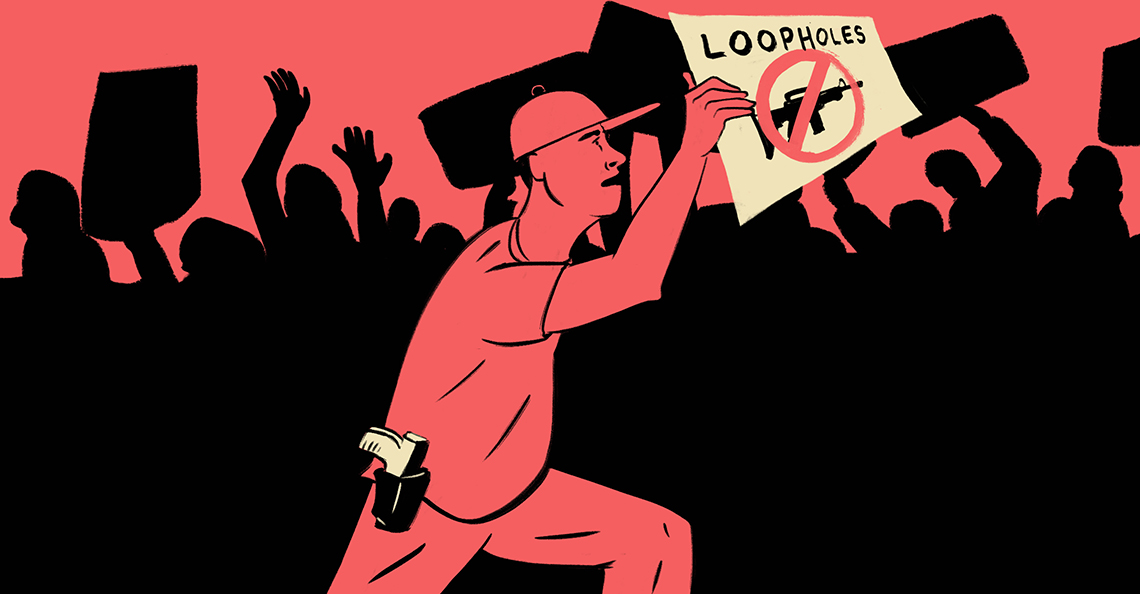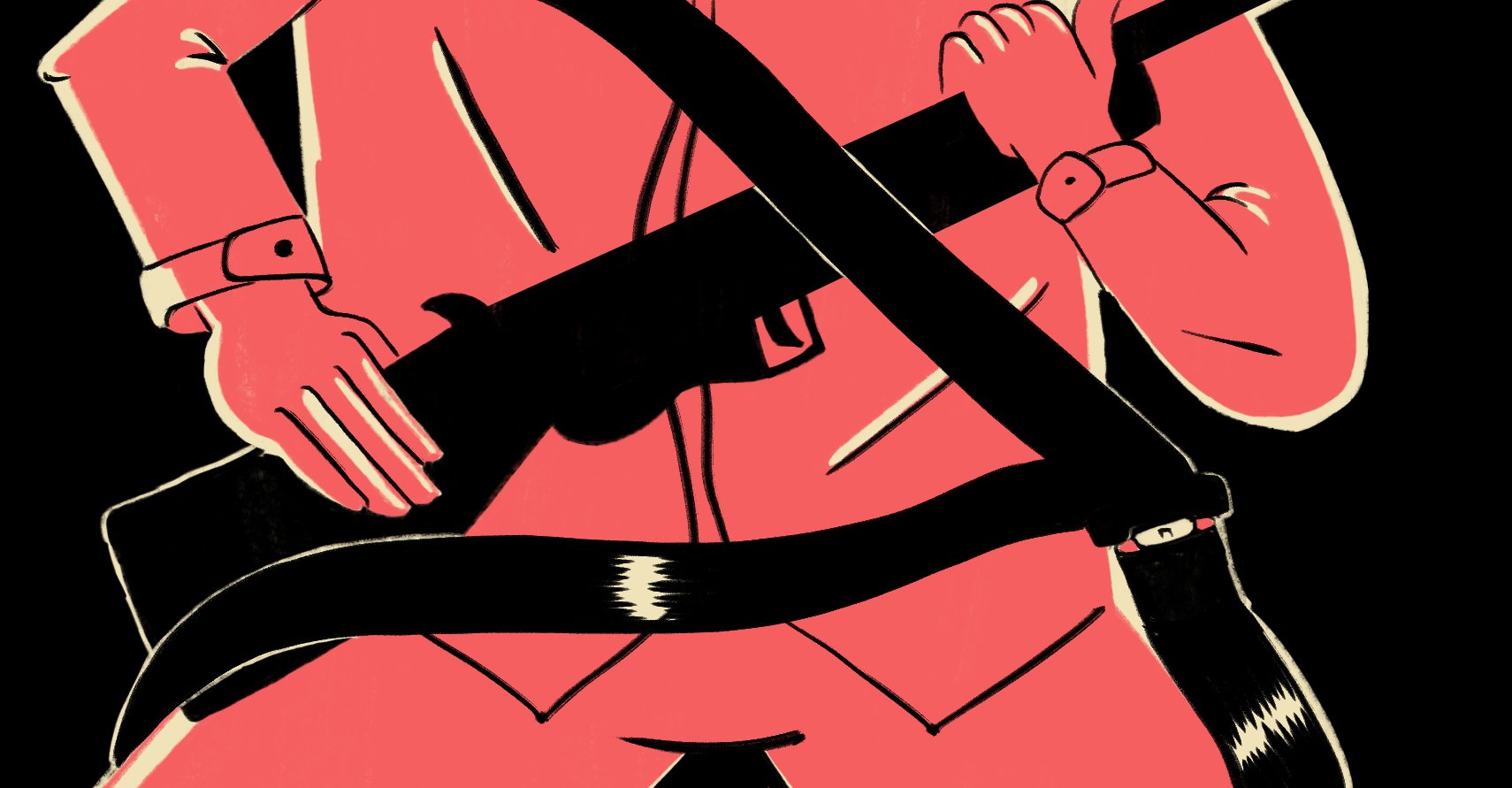Khalil Spencer, 63, is a scientist at the National Lab in Los Alamos, New Mexico. He is a vegetarian and an avid cyclist and he holds a PhD in geochemistry. Spencer is also a lifelong firearms enthusiast who says he occupies an overlooked space in the gun world: the middle. He supports a local shooting club and also a local gun-violence-prevention group. Spencer spoke to The Trace for The NRA and Me, our series of interviews with current and former NRA members.
A few years ago, the local public radio station did a segment on mass shootings. They featured a panel of gun-violence-prevention advocates, and to me, it sounded like none of the panelists owned guns.
So I tried to call in to the show to tell them their conversation was missing a gun owner’s perspective. I wanted to tell them that not every gun owner engages in risky behavior, and that while there is a very large gun-owning community in New Mexico, the violence is confined to a small segment of the population.
I didn’t get through when I called, so I emailed instead. Eventually, I heard back from the co-president of New Mexicans to Prevent Gun Violence, Miranda Viscoli. We traded emails, then calls, and I ended up having lunch with her in Santa Fe.
Lo and behold, Miranda and I had a lot of common ground. Miranda has said, “We’re not anti-gun, we’re not anti-gun owners, we’re anti-gun violence.” So am I. By the time we ended the conversation, I told her I wanted to help. Since then, I’ve given money, I’ve testified, and I’ve given my time to help them write bills that have a chance of passing.
There are two gun-violence laws that I support, and I think other gun owners should support them, too. Background checks on private sales could be very effective. If you sell your gun to somebody who you know beats his wife and that guy shoots his wife, you should go to jail.
Last year, I got involved with the state’s background-check legislation because I wanted it to be written in a way that wouldn’t alienate gun owners. As it was written, my take was that if the gun changed hands for more than five days, it would have required a background check. In other words, I would have had to get a background check to get my gun back if I lent it to a friend or family member. Why make this so all-inclusive that it gets people mad, when what we really want is to prevent guns from going to a stranger without proper vetting, which can only be done via a background check? Rather than alienating gun owners, we want to do everything we can to get them onboard. Let’s challenge them to do the right thing.
Addressing the stolen guns issue would be effective, too. My understanding, from talking to Albuquerque’s police chief, is that a lot of the guns used in crimes are stolen. When you have a lot of guns around — as we do in Albuquerque — and they’re not stored right, they’re a target-rich environment for theft. There have been two big break-ins into poorly designed gun stores. There’s also an awful lot of property theft and residential theft. If you leave your gun laying around, guess what? The crooks are going to have it the next day.
One of the problems with such widespread gun ownership — in the U.S., we have about a 1:1 ratio of guns to people — is that you can’t guarantee that guns aren’t going to be diverted or stolen. So what do we do? Require people to safely store their weapons and provide some tax incentives for them to do so.
If we concentrate on those sorts of things, rather than the hot-button issues that get everybody spun up — like banning assault rifles — maybe there’s hope.
I’m an academic, so I’m probably part of that liberal elite that the NRA sees as the enemy, but I’m also a concealed-carry holder and a longtime firearms enthusiast. The NRA doesn’t speak for me.
But right now, there’s too much divisive rhetoric. Sometimes the NRA and the gun-violence-prevention groups feed off each other. I don’t think anyone can top the NRA’s recent ads in terms of virulence, but groups on the gun-prevention side have called gun owners “wimps,” or accused them of reading “fake news” when they disagree with a bill.
The NRA is especially guilty of heated rhetoric. I was a member for about 10 years, and grew up reading American Rifleman. But in the ‘80s, they tried to get me to donate to Strom Thurmond, and I thought that guy was a racist. I just couldn’t make those kinds of compromises for gun rights. Today, the NRA seems to have become a right-wing, almost alt-right organization, where guns are part of a cultural rejection of the middle of the road.
The NRA is simplifying everything to “us versus them.” I’m an academic, so I’m probably part of that liberal elite that the NRA sees as the enemy, but I’m also a concealed-carry holder and a longtime firearms enthusiast. The NRA doesn’t speak for me.
The only reason we should be talking about gun safety is to make the country safe — not so we can have a culture war.
No one is going to love a law 100 percent. This means I’ll probably have to make some compromises, which will make my life a little more difficult. If I have to get a background check to sell a gun, that’s fine.
We need to get gun owners to buy in to these ideas. We need to make it clear: “We’re not trying to tell you you can’t have your assault rifle or that you have to make all your magazines five rounds or less. We’re telling you that we need to keep guns out of the wrong hands.”
Firearms are meant to shoot holes in things; they’re potentially dangerous. A gun owner has the same responsibility to not inflict violence on the public that I have, as a driver, to not misuse my motor vehicle.
Don’t drive drunk, don’t speed, don’t run red lights. Don’t leave your weapon unsecured. Don’t sell a gun to someone who shouldn’t have one.
I know that my guns and my motor vehicles are the two things with which I am most likely to hurt somebody else. So I hold myself to a very high standard of responsibility with both. All gun owners should.
When I found out about Vegas, I was sick to my stomach.
The fact that people have found a way to work around the National Firearms Act of 1934, with bump-stocks, is not good.
There’s no reason for any device that allows something to be fired like a machine gun to be easily accessible. I think right now we should just do a moratorium on all these pro-gun bills in Congress — the suppressor bill is the one that comes to mind — and then just say “OK, wait. Let’s rethink all of this. What’s the cost benefit ratio of all this stuff?” I mean, there’s no real benefit to society of having bump-stocks or other things that let people, you know, create what’s essentially an automatic weapon.
We have to be careful, though, because otherwise we’ll go the same route we did after Newtown. We’ll just end up manning the barricades again. We need to get the information about what happened, how it happened, to start slow and build consensus for change. If not, we won’t get anything done.

